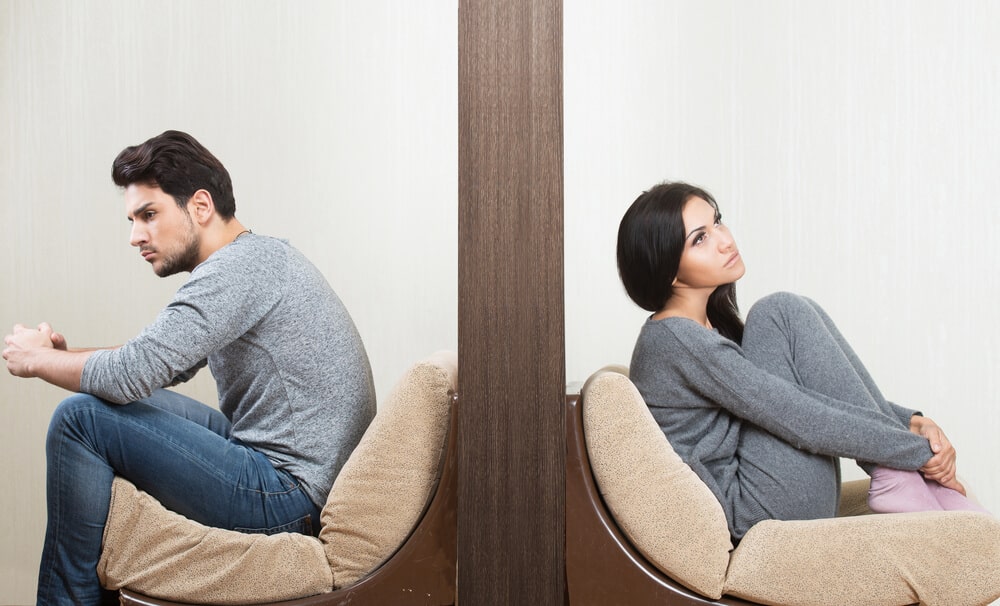Undergoing Divorce While Living Together in New Jersey
There are Some Pros and Cons of Living Together While Divorcing; Discussing the Boundaries With Your Partner Becomes a Critical Component to the Success of These Types of Situations

Some emotional turmoil and disagreement are inevitable during a divorce, but living together typically heightens these emotions, as potential triggers for conflict are much more frequent. Even if you expect the best from your situation, making a plan for the future and how you will navigate through this season of living together during your divorce proceedings will help to ensure a better outcome. If you choose to continue living with your spouse while getting a divorce, it is prudent to understand the potential legal implications of that decision and get adequate support during this major life change.
Insights on Why Couples Choose to End Their Marriage Even Though They Are Still Living Together
Operating separate households can be quite expensive for most people, especially with inflation, rising rental prices, and higher interest rates. Saving money is a major motivator for living together while going through a divorce. For many individuals, their wealth may be tied up in the equity of their home with limited cash flow to fund an entirely separate life. Rent or a new mortgage, security deposits, utility bills, and moving expenses can add up quickly, especially in New Jersey, where the cost of living is comparatively higher than many other areas in the nation.
Another motivating factor for living together during a divorce is to keep things steady and consistent for children. Rather than having children move back and forth between two different residents before they have even had an opportunity to process the major changes that are about to occur in their lives, if the parties can maintain the status quo while the divorce is processed, this may be seen as an advantage to some people.
Some individuals choose to live together during a divorce for strategic reasons. If a parent is planning to seek primary custody of the couple’s children, then leaving the family home with the children remaining in the family home could be an influencing factor in a custody determination, though it is not dispositive.
If a spouse has concerns about the other selling property or assets or making parenting decisions they do not agree with, they may choose to stay in the family home until the divorce is processed and the marital assets are divided, and a custody determination is made.
Legal Consequences of Cohabitating During a Divorce in New Jersey
New Jersey allows for “no-fault” divorces, which means that to file for a divorce in New Jersey, you do not need to prove any grounds for divorce, such as abuse, adultery, or habitual drunkenness. However, to be granted a “no-fault” divorce, the couple must have had “irreconcilable differences” for a period of at least 6 months prior to filing a divorce complaint. If a couple continues to live together after filing for a “no-fault” divorce, they may need to show the court additional proof that the marriage is irretrievably broken.
On the other hand, because New Jersey does provide for “no-fault” divorce, living together does not necessarily undermine the divorce process, even if the couple’s continued cohabitation seems inconsistent with another ground for divorce. Simply put, the couple need not provide as much of a detailed explanation for the state of their relationship in a no-fault divorce.
Is It a Good Idea to Live Together During a Divorce in NJ?
For most couples, getting divorced means that the relationship between them is very poor. Continuing to live together when you are going through a divorce can increase the opportunities for conflict, arguments, toxicity, and hurt feelings. It can also prevent the parties from having the space away from each other that they need to heal from the end of their relationship. Ending a marriage is an emotional experience, and seeing one’s soon-to-be ex-spouse every day and living under the same roof with them can make it difficult to make plans for the future.
If there was ever any history of physical, emotional, or mental abuse in the relationship, continuing to cohabitate during the divorce can be very harmful, if not dangerous. This is particularly true if the party filing for divorce has been the victim of the other spouse’s abuse in the past.
 How to Live Together Amicably With Your Soon-to-be Ex-Spouse
How to Live Together Amicably With Your Soon-to-be Ex-Spouse
Depending on the reasons why you are getting divorced, deciding to cohabitate could create a volatile living situation, or it could result in a very painful and long goodbye. If you choose to live with your soon-to-be ex-spouse while you are going through a divorce, it is important to ensure that both parties have a clear understanding of the reasons why you are continuing to cohabitate and why you are getting a divorce and to set clear boundaries around your communication and expectations of one another.
Even if you have already decided to get a divorce or have already filed for divorce, speaking with a counselor may be helpful to create an intentional plan for your cohabitation while divorcing and equip you with valuable tools for avoiding and managing conflict with your soon-to-be spouse during the process.
Contact a Skilled Family Lawyer for Your Divorce Issues while Still Living with Your Ex Spouse in NJ
If you and your spouse are planning to live together during your divorce, that might mean you get along better than most couples in your position. However, it could also create a situation that makes an already difficult situation highly emotional and confrontational. Seeking the guidance of a seasoned divorce lawyer at The Bronzino Law Firm will help you to navigate the impact of your living arrangements on issues like asset division, alimony, child custody, and child support. Even if you and your spouse have the best of intentions to peacefully navigate your divorce, it is important to equip yourself with the information you need to protect your legal and financial interests.
For more information about how we can help to ensure that your divorce proceeds smoothly and your interests are protected and advocated for, contact our office in Brick or Sea Girt today to set up a consultation. We assist clients with preparing for the divorce process, during each phase of the divorce, and in post-divorce matters in Freehold, Red Bank, Rumson, Spring Lake, Lakewood, Manalapan, Ocean Township, Brick, and throughout Ocean and Monmouth County. Speak with a divorce lawyer free of charge and decide what your next steps should be by calling (732) 812-3102 today.


 How to Live Together Amicably With Your Soon-to-be Ex-Spouse
How to Live Together Amicably With Your Soon-to-be Ex-Spouse




